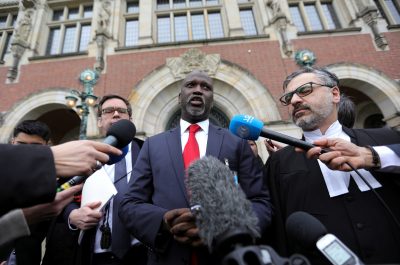Written by: Journalist: Maung Maung Naing
Rohingya refugees are inaccessible not only from internet & phone service but also from medical support during corona virus locked down in Bangladesh
"As a Rohingya Sister with Australian Burmese background from Sydney, I am requesting all United Nation authorities, policymakers and Rohingya humanitarian activists that my Rohingya brothers and sisters are in desperate need of medical support, phone and internet access in refugee camps in cox bazaar." said Pan Sandar Myint
"Rohingya refugees are in the greatest risk during locked down of covid-19 because they are not receiving updated information of covid-19 from internet, phone and medical support service due to the internet ban by the Bangladesh government."
While people across the globe are staying at home comfortably by watching TV, using internet & getting easy access of medical support and latest information of covid-19, nearly one million Rohingya refugees are banned from internet and phone service to receive basic information about coronavirus. This lead them in prodigious risk to the virus because of not getting enough knowledge for precautions of the virus.
My team and I have done online research with three Rohingya youths who have shared struggling stories of refugees in the cox bazaar camp.
Abdul Rahim Phoenix Arizona, USA
 Abdul Rahim
Abdul Rahim
Yasor Arfat, cox bazaar, refugee camp of Bangladesh
Yasor Arfat is currently living in Bangladesh Rohingya refugee camp (cox bazaar). According to him, all refugees are safe and healthy. No one has infected from covid-19 yet. But there is no network and no medial support such as masks, gloves and hand sanitisers. He has learnt that the best way to safeguard from the virus is washing hands regularly and avoiding crowded places. But it is impossible to avoid from crowded places because they all live together in tiny crowded shelters. These shelters are too close to each other (less than 3 inches). They all share toilet and water well.
Maung Maung Naing, Bangladesh
Maung Maung Naing is currently residing in Bangladesh from Maungdaw, Buthithaung. He has lived in the camp and has faced inaccessible of internet. According to him, the Bangladesh government has banned the internet & phone service since 2019. It has restricted on aid groups by accusing on some NGOs of encouraging refugees to resist deportation. The Bangladesh army has started building fences with watchtowers to prevent refugees from leaving the strictly controlled camp areas. He is very worried about hard medical support system in the camp during this sensitive severe situation of covid-19. For 1 million Rohingya refugees, the Bangladesh has provided a few medical facilities in which all refugees need to queue in serial number in a large crowd to get treatments without following 1.5 metre social distancing procedure of covid-19 precaution. These people have no right to work there and cannot afford to buy masks and gloves as well.
Pan Sandar Myint, Ms World Australia National Finalist 2020
 Pan Sandar Myint
Pan Sandar Myint"Coronavirus is risky like a time bomb to Rohingya refugees" Being an advocate of my Rohingya family, I am extremely worried for my Rohingya brothers and sisters residing in the Rohingya refugee camp (cox bazaar) that they will face severe fatal situation if the virus has reached there. They have no updated and enough medical supplies, equipment, and health practitioners like in Australia, USA, Canada & UK. I am really urged all United Nation authorities, policy makers and humanitarian activists to stop Bangladesh government from banning internet and phone service to Rohingya refugees by enhancing on aid groups more with full medical supplies, medical support and qualified health practitioners before the virus has reached to the camp.


